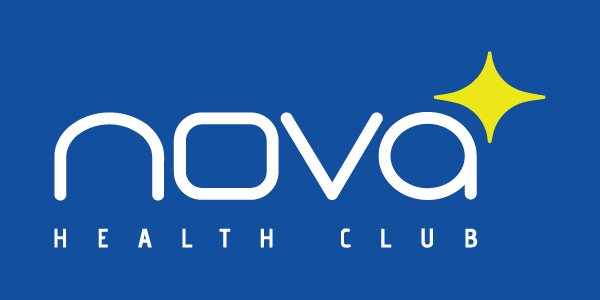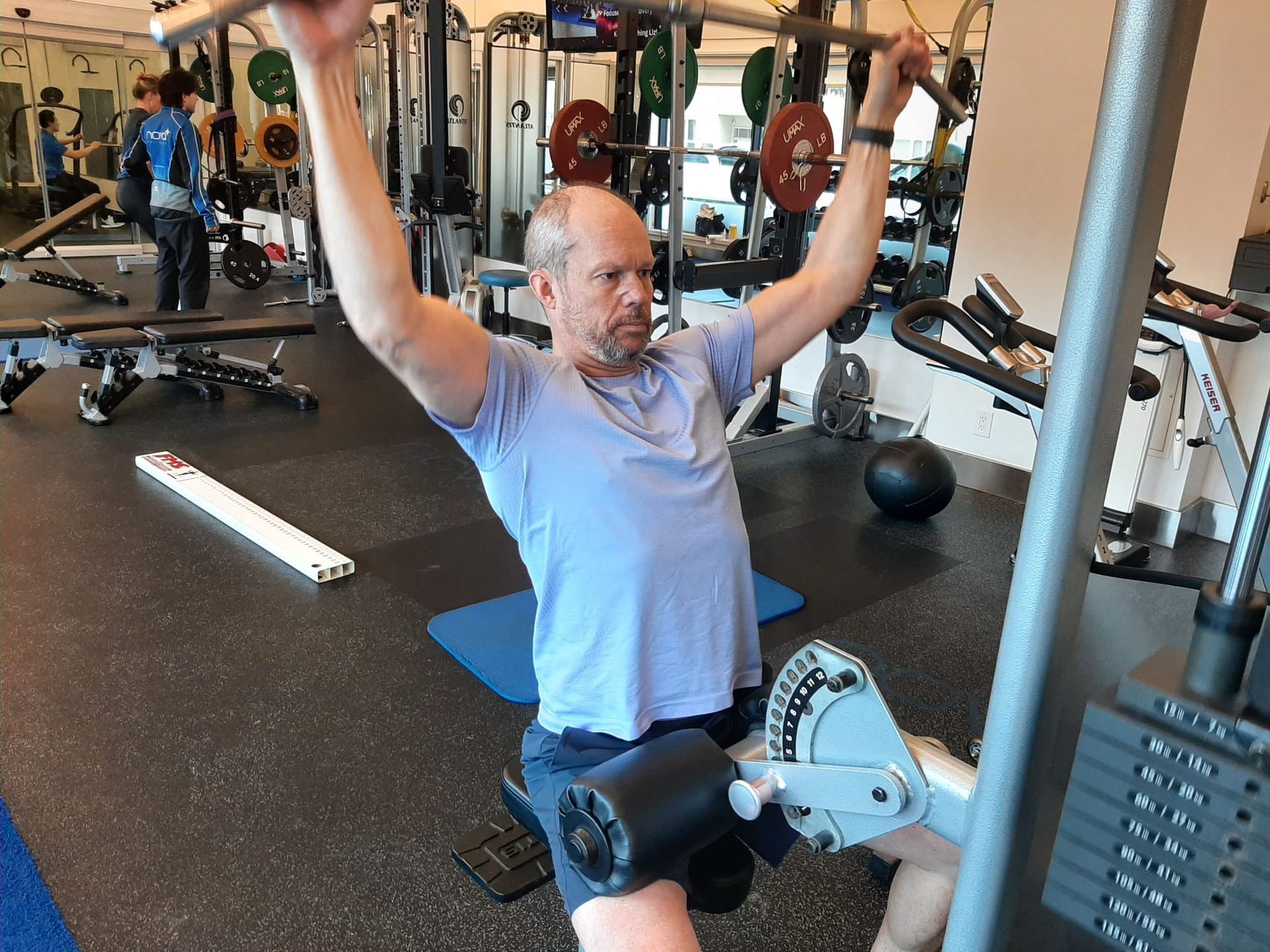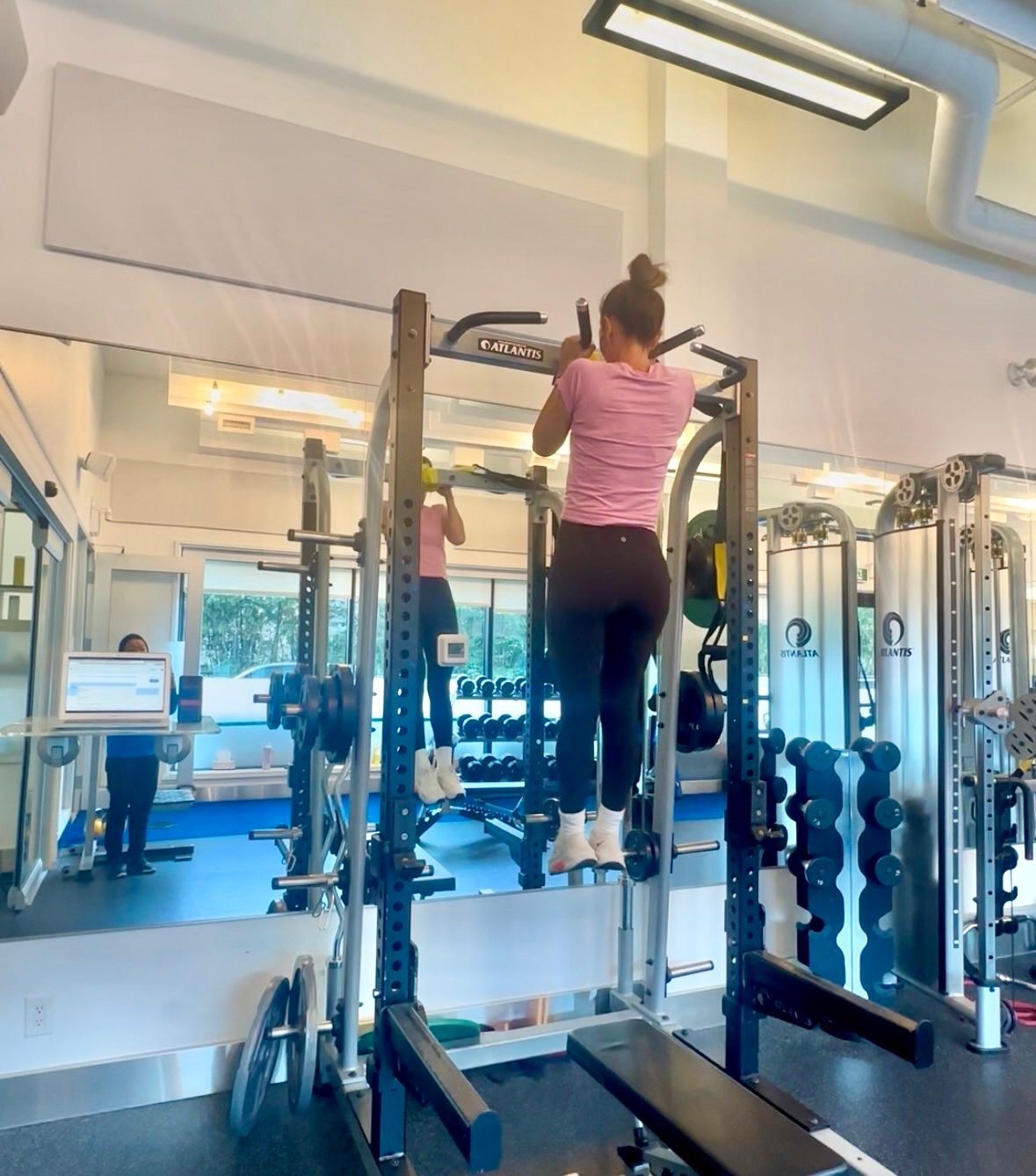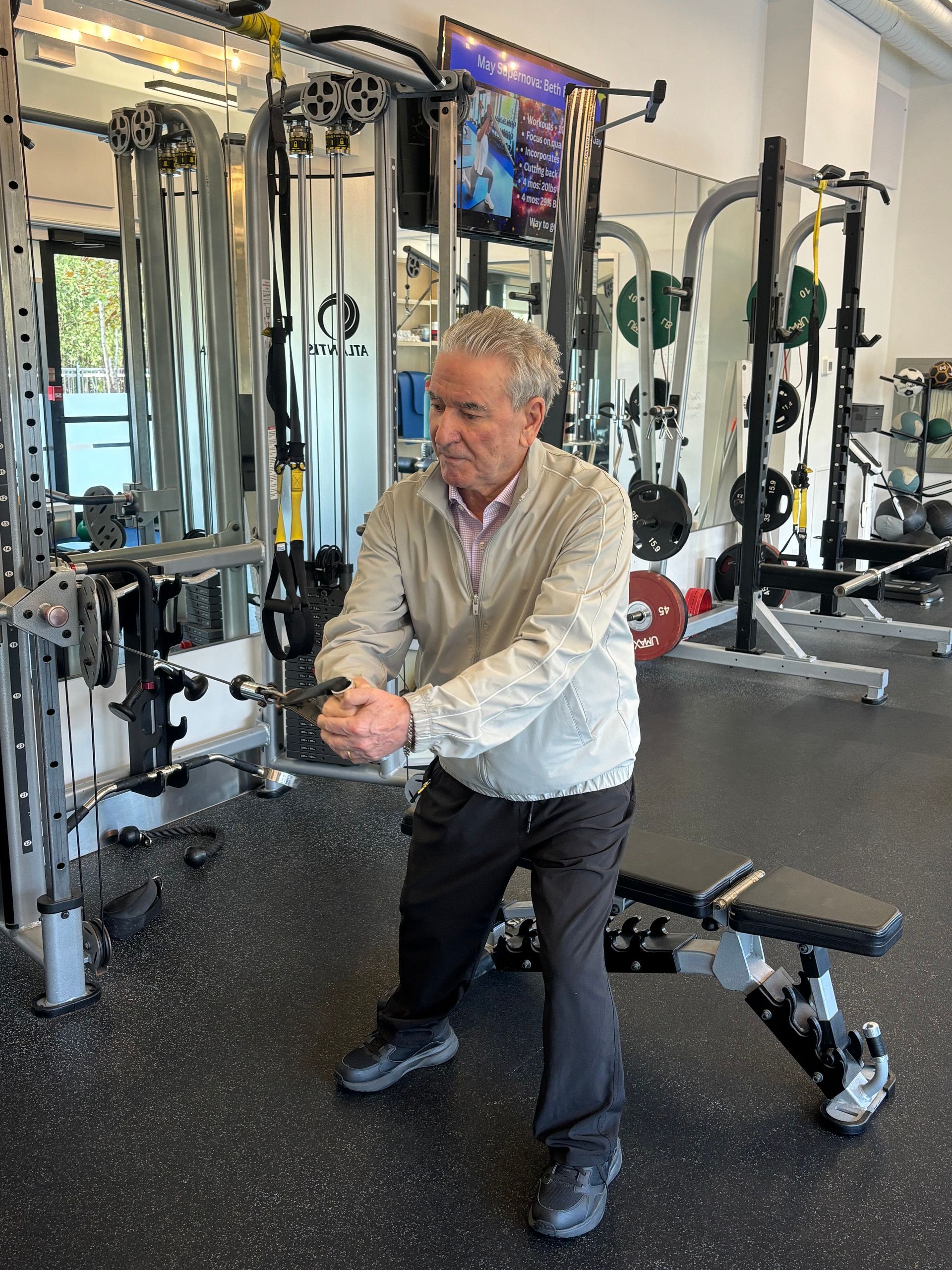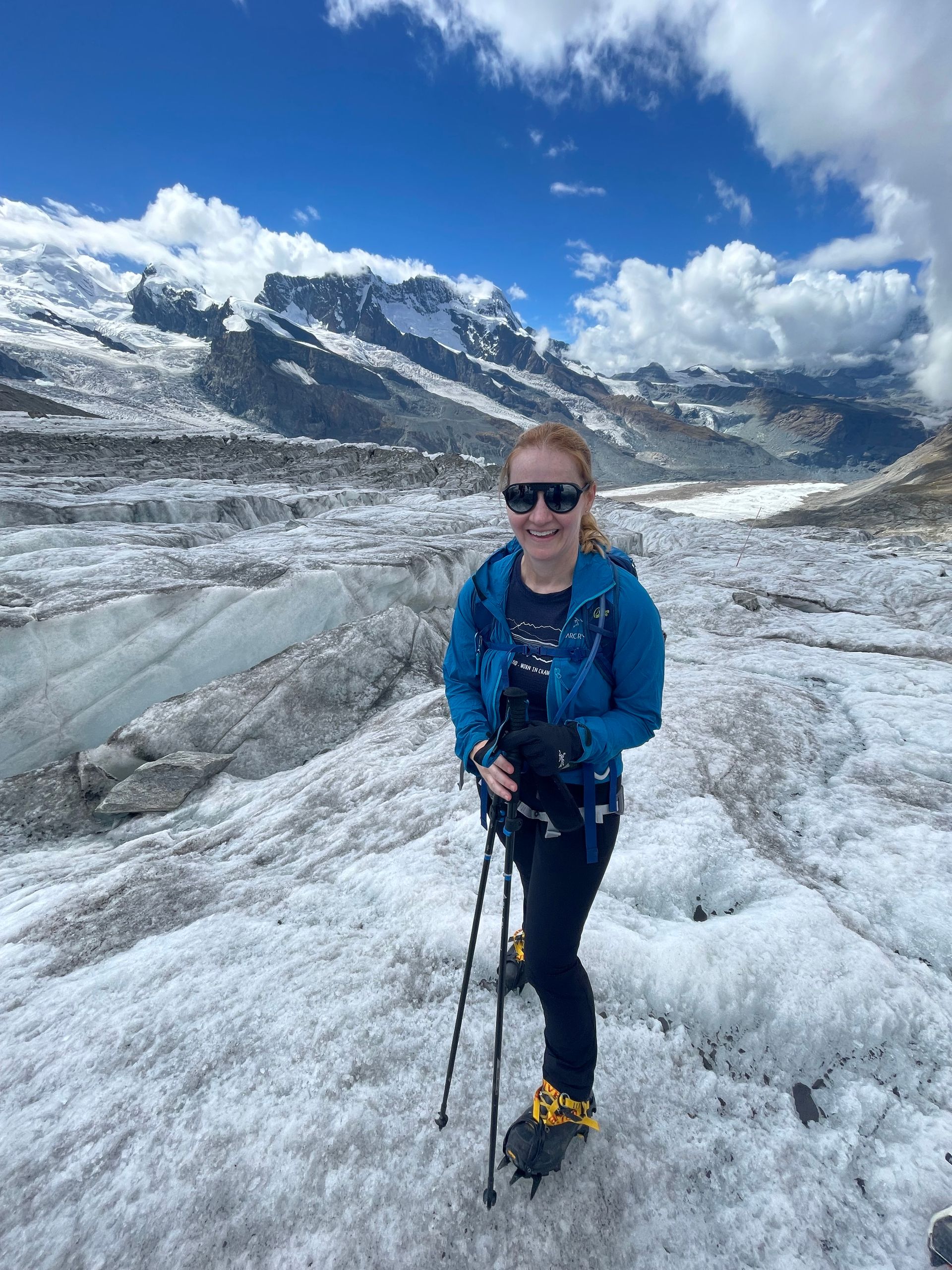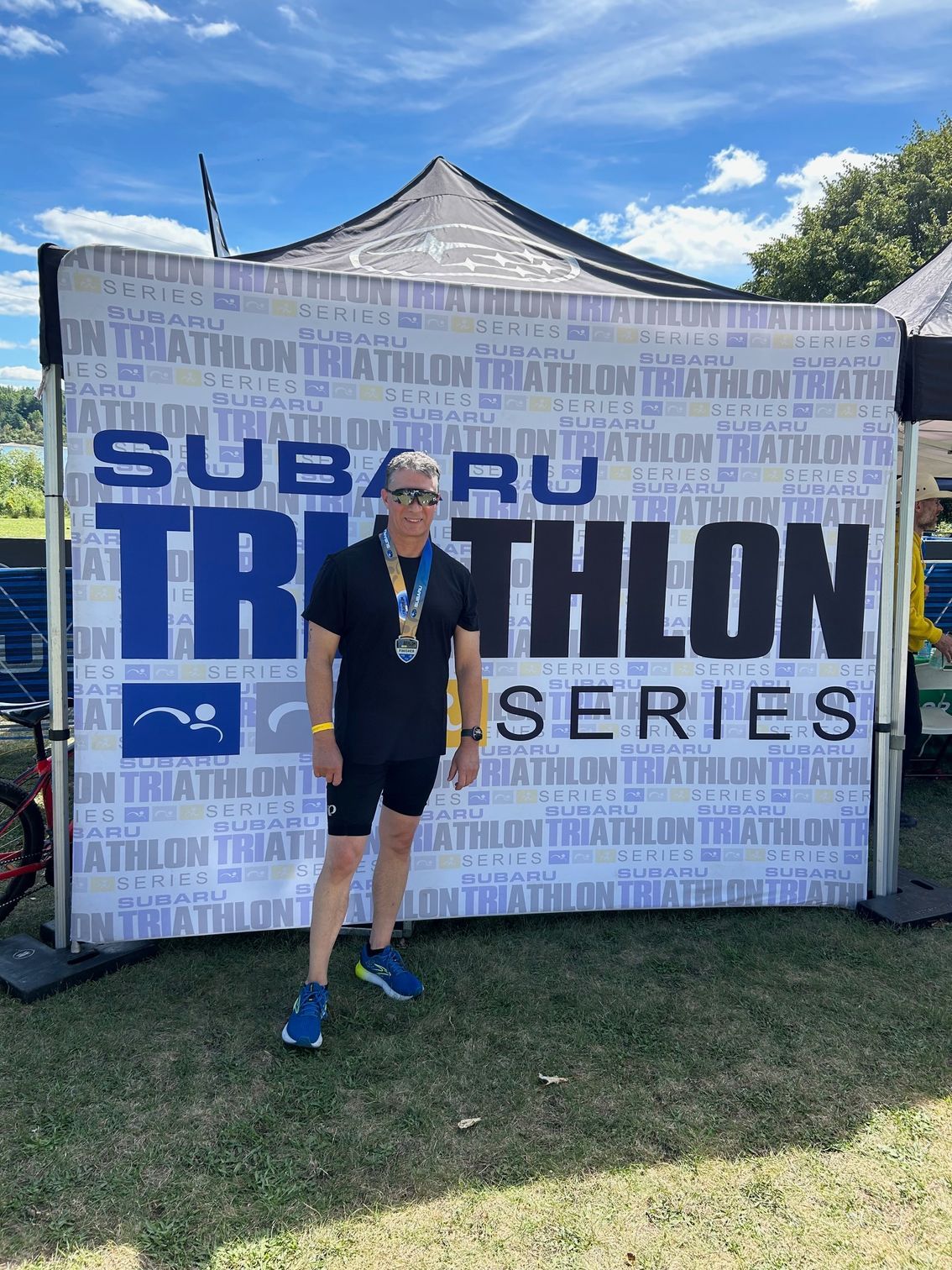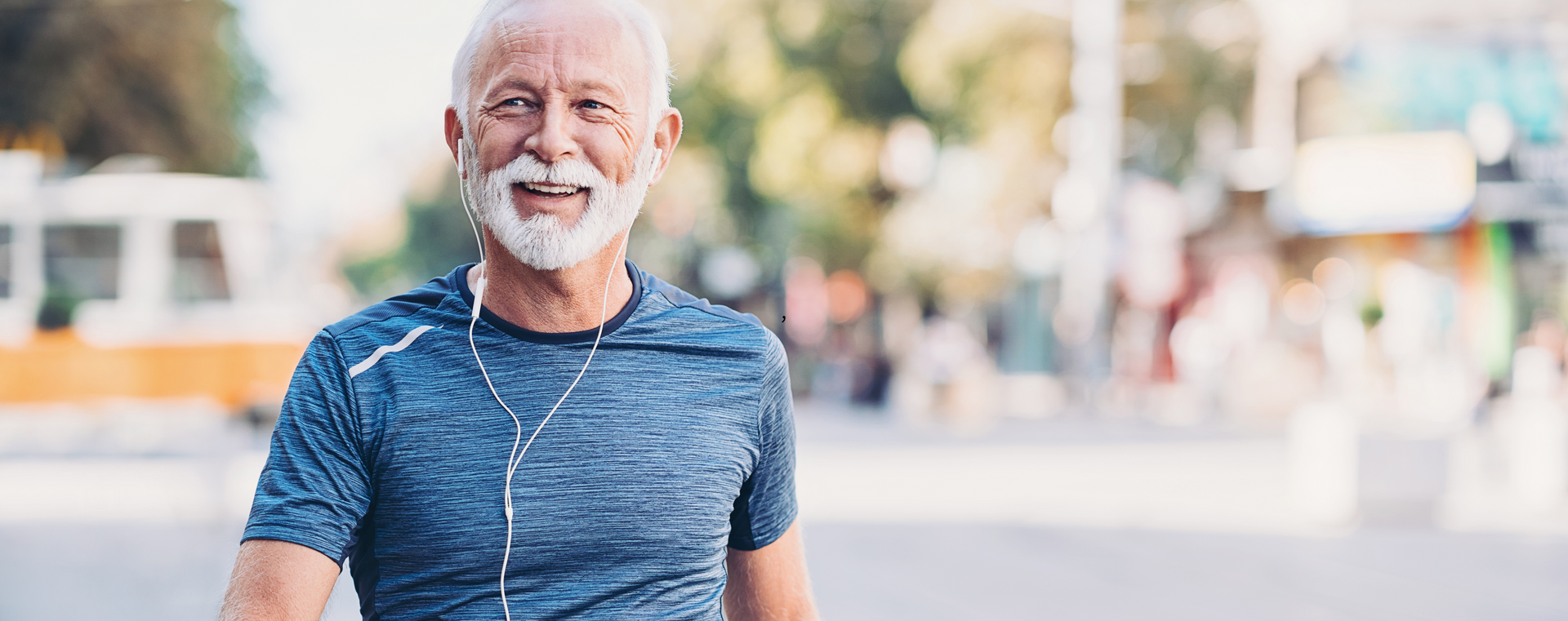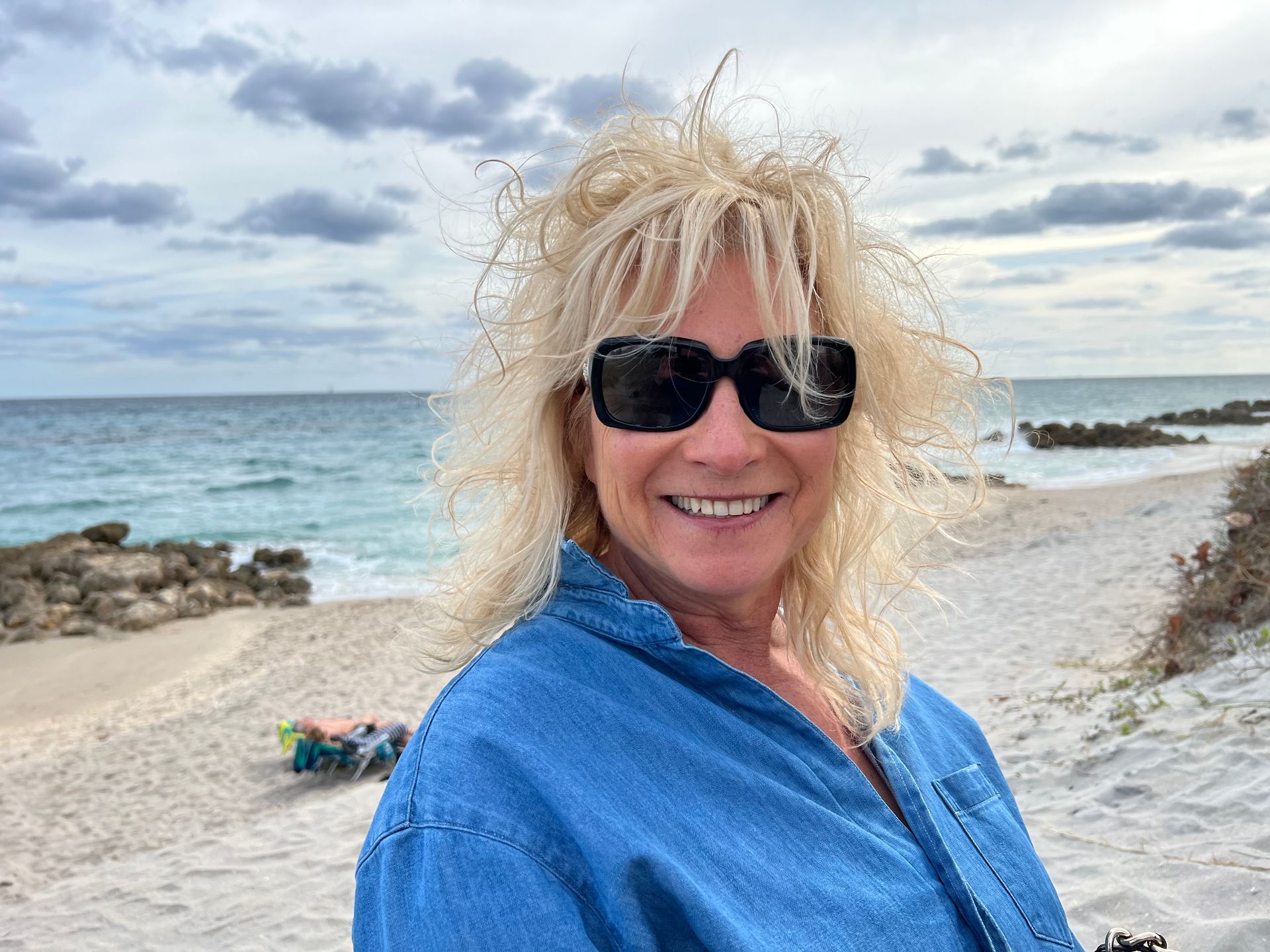Use It Or Lose It
Nicole Chatten • March 6, 2021
The Effects of Detraining and Inactivity
Use it or lose it. A saying that gets thrown around often, but what does it really mean? Throughout the past year Coronavirus has made it extremely difficult to workout, stay motivated and keep training. If you have taken a short or a long break from training, do you really know what this is doing to your body and fitness gains you have previously made?
The principle of detraining explains the partial or complete loss of training induced anatomical, physiological and performance adaptations. This detraining happens at different speeds and intensities for cardiovascular systems vs. strength adaptations.
STRENGTH LOSSES
Strength can be maintained for 3-4 weeks but is gradually lost with longer periods without exercise (Ochi, et al., 2018). When we return to the gym, it has been shown that it is easier to regain our strength and muscle mass due to quicker neural adaptation; what everyone calls ‘muscle memory’. In order to maintain strength, an individual must train once per week to maintain strength over 8-12 weeks (Ronnestad, Nymark, & Raastad, 2011; Travares, et al., 2017).
CARDIOVASCULAR LOSSES
Endurance and cardiovascular detraining occur at faster speeds compared to strength loss. Endurance athletes can see decreases of 4-25% within 3-4 weeks, while beginners can see decreases in as little as 2 weeks (Bosquet, Mujika, 2012). It will take longer to regain these losses for the cardiovascular system, with timelines around 4 weeks. To maintain endurance, lower training volume by 60-90% and frequency by 50-70% with the same intensity (Mujika, & Padilla, 2000).
Detraining affects both males and females equally (Lemmer, et al., 2000). However, age has been shown to influence detraining outcomes. After 12 weeks of inactivity and no training, older individuals have shown greater rates of detraining compared to younger individuals (Lemmer, et al., 2000).
TAKE ACTION
To curve the effects of detraining during injury, remember that there are many alternatives to your usual training routine. For example, if you have an injury, you can still train the upper or lower body depending on the type of injury. In consideration of lockdowns and gym closures during Covid, you can always use your body weight to train strength rather than dumbbells and getting outside for cardio instead machines is another option.
When it comes to ensuring maintenance of your fitness progress, be flexible and open to trying new things. That way you will not be susceptible to detraining and who knows, you may end up finding something new that you really enjoy. A break can be a good thing, but don’t stop training for long periods of time. Decreasing intensity, time, frequency and loads in our workouts are ultimately better alternatives to complete cessation of training. Remember, training should be fun and provide physiological and psychological benefits, so don’t stress yourself out over having to take a week off here and there.
“In lockdown 1 I tried to maintain fitness by lots of walking through the neighborhood. With dark Winter evenings that wasn’t an attractive option in lockdown 2, so I decided to try online training. With no home gym I was a little skeptical on what the sessions could achieve. However I’ve been pleasantly surprised and pleased with the results to date. With just a yoga mat, some resistance bands, an exercise ball (all courtesy of Amazon) and some space in the downstairs den, the Nova team has designed training sessions that help me keep progressing towards my objectives. I can now be confident that when I get back to the gym in person, there will have been no backsliding in fitness levels”.
-Rosalind Messer
If you have been off training for some time and need help getting started
contact us
for some direction and motivation.
References:
Bosquet, L., Mujika, I. (2012). Detraining. Research Gate.
Lemmer, J.T., Hurlbut, D.E., Martel, G. F., Tracy, B L., Ivey, F. M., Metter, E. J., … & Hurley B. F., (2000). Age and gender responses to strength training and detraining. Medicine and science in sports and exercise, 32(8), 1505-1512.
Mujika, I., & Padilla, S. (2000). Detraining: Loss of training induced physiological and performance adaptations. Part II. Sports Medicine, 30(3), 145-154.
Ochi, E., Maruno, M., Tsuchiya, Y., Ishii, N., Miura, K., & Sasaki, K. (2018). Higher training frequency is important for gaining muscular strength under volume-matched training. Frontiers in physiology, 9, 744
Ronnestad, B. R., Nymark, B. S., & Raastad, T. (2011). Effects of in-season strength maintenance training frequency in professional soccer players. The Journal of Strength and Conditioning Research, 25(10), 2653-2660.
Travares, L. D., de Souza, E, O., Ugrinowitsch, C., Laurentino G. C., Roschel, H., Aihara, A. Y., … & Tricoli, V. (2017). Effects of different strength training frequencies during reduced training period on strength and muscle cross-sectional area. European Journal of sports science, 17(6), 665-672.

It's that time of year again where Halloween candy is everywhere - especially if you have children who are in the trick or treating age. We all know that candy is unhealthy and we are aware of sugar's detrimental effects on our health, from weight gain to cavities... But do you know the risks in eating Halloween candy that go beyond weight gain and cavities? While sugar is certainly a concern, other ingredients in many popular candies can chip away at your health and well-being. The Deceptive Allure of Halloween Treats While eating Halloween candy can be a nostalgic pleasure, the ingredients list tells a different story. I personally love Halloween but about 7 years ago I went clean and gave up Halloween candy for good because I learned it is much more than a sugar problem… Beyond sugar, are ingredients like hydrogenated oils, high-fructose corn syrup, artificial colors, titanium dioxide and common allergens like wheat, corn, dairy, and soy. These ingredients can wreak havoc on our bodies, leading to a host of negative health effects that most consumers overlook. Beware: 5 Ingredients in Halloween Candy With Negative Health Effects 1. Hydrogenated Oils: Hidden Fats Hydrogenated oils transform liquid oils into solid fats and enhance texture and shelf life. These trans fats are notorious for raising bad cholesterol levels, increasing the risk of heart disease and causing inflammation in the body. Look out for the word ‘Hydrogenated’ in candies like Skittles or Starburst 2. High-Fructose Corn Syrup (HFCS): A Sweet Sabotage HFCS is another frequent offender. It’s a cheap, sweet alternative to sugar that can lead to rapid spikes in blood sugar levels and cravings. Overconsumption of HFCS has been linked to obesity, insulin resistance and fatty liver disease. Many people consume HFCS without even realizing it. Candies like Oh Henry and other chocolate bars have HFCS. 3. Artificial Colors: A Rainbow of Risks The colors that make Halloween candy so visually appealing are often the result of artificial colorings like Red 40, Yellow 5 (Tartrazine), Yellow 6 (Sunset Yellow) and Blue 1. Studies have shown links between these artificial colors and hyperactivity in children, as well as allergic reactions as well. Here are some of your Halloween favorites with these colors: Skittles , Maynards , Sour Patch Kids , Jolly Rancher , Twizzlers , Starburst and M&M’s 4. Titanium Dioxide: The White Truth Titanium dioxide is used in many candies to enhance their whiteness and opacity. It is a detergent that damages your gut and decreases your gut microbiome. Any candy that has a white center, like Skittles is known to use this ingredient. 5. Allergens: Hidden Dangers for Sensitive Individuals Finally, we can’t forget the processed allergens like wheat, corn, dairy and soy in many candies like Mars or Snickers . Those who are highly allergic know to stay away from foods with these ingredients but what about the low grade allergic response that most people ignore? Hives, scratchy through, congestions, asthma, sneezing, itchy eyes and mild GI discomfort are all effects of these allergens. The Scary Reality Halloween is a fun time but we’ve really thrown in the towel when it comes to our health based on the things we are accepting as ok. We've created a society where we buy the cheapest, lowest quality candies to give to our children (and ourselves). Most, if not all of the mainstream candy companies produce products that are high in chemicals to preserve shelf life, to entice our eyeballs and to stimulate our brain to want more the moment it hits our palette. We've also bought into the idea that it's ok because it is just once a year... but the reality is that this food is everywhere all the time. If it was just one day on Oct 31 then sure - that could be ok, but most children are coming home with more than 10lbs of candy that they consume over the next 30 days. It’s no wonder why so many of us suffer with health issues including our children. Modern children are being diagnosed with more health problems than previous generations. Things like childhood depression/anxiety, food allergies, ADHD, autism, eczema and obesity are just some of the things we are seeing more of. Stay Vigilant and Read Labels Can we blame our poor health all on Halloween candy? Certainly not - it's more than just candy in October however the amount of candy with the above ingredients being consumed during Halloween and through the year is definitely a contributor. So when it comes to candy, watch out for the sugar but it’s time to wake up to the other ingredients that are damaging us. The best thing to do is read the labels and be aware of what you choose to consume. And hopefully in time we choose to buy 'treats' that are not filled with chemicals. Next year, choose to buy healthier options versus the mainstream candy we grew up with. Healthier Alternatives Here are some options to consider instead of the mainstream low quality garbage that we've been accustomed too: Chocolate Bars Unreal Coconut Bars : This company is on point with way healthier ingredients than the mainstream. They carry an assortment of candies beyond just the coconut bar (which is one of my faves). Granola Bars Made Good : You've probably seen this brand around in stores - specializing in gluten free healthier granola bars. Cookies Simple Mills : Making cookies and baked goods gluten free and with sweeteners that have a lower glycemic index than regular sugar (less of a blood sugar spike) Candies Smart Sweets : Candies without artificial colors and high sugar Lollipops & Jelly Beans YumEarth : W ithout artificial colors Water Enhancer (Vitamin C) Emergen-C : Something different from usual candy - Vitamin C drink crystals that are a much healthier option to candy and kids love em. There are more brands out there but you have to be on your toes when buying. Pay attention to brands, scrutinize the ingredient list and pay the extra money. Every dollar you spend is a vote - the more we vote for the better products for our health, the lower the cost will end up being in the future.
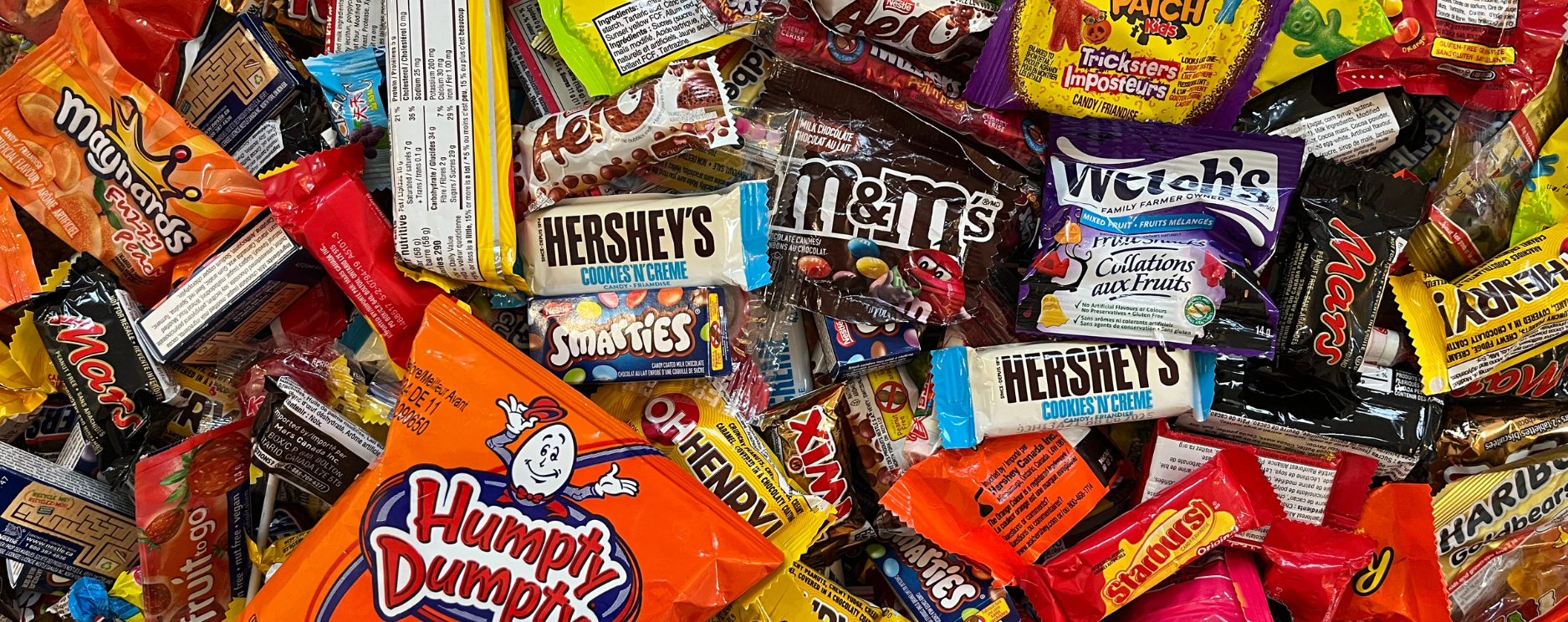
Having trouble controlling the intake of Halloween candy? Unless you are a disciplined ninja or equipped with helpful restraint tactics, you end up eating too much of this low quality, highly processed junk food. If you are someone with a sweet tooth then you are in luck! Here are 5 tactics that will help you avoid eating too much (if any) candy this Halloween. 1)Don’t Skip Meals or Snacks Skipping meals and snacks creates stress on your body and a stressed body is more likely to have sugar cravings. Self control becomes extremely difficult when you're underfed. If candy appears it is much harder to resist because your body is lacking energy, vitamins and minerals. If you eat a solid meal along with healthy snacks throughout the day (ie: protein shake, apple and almonds) I guarantee that it will be hard to eat candy. 2)Eat Enough Protein On the heels of not skipping meals, make sure each meal has enough protein. Meals that are low in protein mean that they are higher in carbs. As a result you will deal with blood sugar dips and greater hunger, weakening your resistance to candy. How much protein? This differs between people but generally you aim to have at least 0.8 grams of protein per pound of ideal body weight. The more active you are, the more protein you will require. 3)Stay Hydrated Being dehydrated will make you feel hungry even when you are not actually hungry. As a result you are more likely to have the urge to grab a sweet from the candy bowl. The simple solution is to just drink enough water throughout the day. How much water? Click here to download your All About Water PDF. 4)Say It Out Loud Often we eat candy without thinking. It is not uncommon to have 5 or 6 candies before you become mindful of what you are doing. By then it’s too late. This may sound strange but as you are picking up the candy - say out loud “I am going to eat this candy” (even if no one is around). This helps you become more aware of your actions, encourages mindfulness, and engages your logical mind. 5)Educate Yourself The scary truth is that mainstream Halloween candy is some of the worst food you can put into your body. Most of these candies contain highly inflammatory ingredients, allergens, and toxins known to disrupt everything from the gut microbiome to DNA, potentially contributing to ADHD symptoms and triggering allergies… And that’s without commenting on the effects of sugar that most of us already are aware of. Eating certain candies can be just as bad as smoking a cigarette! Give these tactics a try - they should help you to say no to Halloween junk food this year. If you are still having trouble, you can attempt a ‘clean sweep’ by throwing it all into the garbage… If you still have a sweet craving, have some dark chocolate or walk to the best bakery in town and buy yourself a $10 chocolate croissant :) Happy (Healthy) Halloween!
